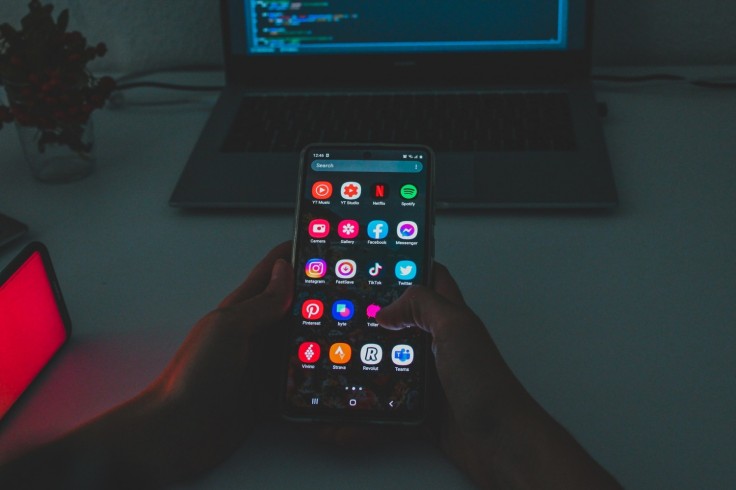
In the digital age, where our smartphones have become extensions of ourselves, it is no surprise that they have revolutionized how we manage our personal finances. Gone are the days of pen and paper budgeting or juggling spreadsheets. With the increase of mobile apps, individuals now have powerful tools at their fingertips to take control of their financial well-being.
In this article, we will discuss the significant role of mobile apps in managing personal finances and how they have transformed the way we budget, track expenses, save, and invest.
Budgeting Made Effortless
Effective budgeting is the cornerstone of financial success. Mobile apps have transformed the budgeting process from a tedious chore into an intuitive and even enjoyable experience. These apps allow users to set up budgets, categorize expenses, and track spending patterns effortlessly. They provide real-time insights into where your money is going, helping you identify areas where you can cut back and save.
Apps like Mint, YNAB (You Need A Budget), and PocketGuard sync with your bank accounts and credit cards, automatically categorizing transactions and providing visual breakdowns of your spending habits. By streamlining budgeting, these apps empower users to make informed financial decisions, set achievable financial goals, and stay on top of their financial health.
Expense Tracking and Financial Awareness
Gone are the days of collecting receipts and manually recording transactions. Mobile apps have simplified expense tracking by digitizing the process. Users can now simply snap a photo of a receipt or input a transaction on their mobile devices, and the app does the rest. This not only saves time but also enhances financial awareness.
Apps go beyond simple tracking by offering insights and trends. For instance, users can see how much they've spent on dining out in a given month or monitor their entertainment expenses. This level of transparency encourages responsible spending and empowers individuals to make conscious choices about their financial priorities.
Simplifying Bill Payment and Money Transfers
Mobile apps have simplified the way we manage bills and transfer money for both personal and business purposes. Instead of juggling multiple paper bills, users can set up automatic payments and receive notifications before due dates. As some companies offer special credit card discounts and deals, you can save many bucks every month on payments if you have one of the best credit cards linked to your mobile payment app. Online payment apps like PayPal offers seamless money transfers between friends and family, eliminating the need for physical cash or checks.
Automated Savings and Investing
Mobile apps have democratized savings and investing, making it accessible to individuals with varying levels of financial knowledge. Many apps offer automated savings features that round up purchases to the nearest dollar and invest the spare change in a diversified portfolio. This micro-investing approach allows individuals to start investing with minimal effort and capital.
Moreover, robo-advisors, such as Betterment and Wealthfront, leverage algorithms to create personalized investment portfolios based on individual goals and risk tolerance. Users can monitor their investments, make adjustments, and contribute funds through the app, providing a hands-on approach to growing their wealth.
Financial Education and Empowerment
Mobile apps are not just tools for financial management; they are also valuable sources of financial education. Many apps offer articles, videos, and interactive content that help users understand personal finance concepts, such as budgeting, investing, and retirement planning. For instance, a funeral insurance company can share educational content like blog posts, videos and other types of interactive contents through their mobile apps to educate both potential and existing customers.
These educational resources enable individuals to make informed decisions about their money and improve their financial literacy. As a result, users become more confident in managing their finances, setting and achieving financial goals, and navigating complex financial landscapes.
Enhanced Security and Fraud Prevention
Security concerns used to be a significant barrier to managing finances through mobile apps. However, advancements in encryption and authentication technologies have significantly improved the security of these platforms. Many apps now offer biometric authentication, such as fingerprint or facial recognition, to ensure only authorized users can access their financial data.
Furthermore, apps often provide real-time alerts for suspicious activities or unauthorized transactions, enhancing fraud prevention. This level of security has transformed mobile apps into trustworthy tools for managing personal finances, mitigating many concerns associated with online financial activities.
Strengthening Financial Discipline
Beyond the convenience and automation, mobile apps play a pivotal role in cultivating healthy financial habits. The act of consistently logging expenses, setting savings goals, and tracking investment progress fosters discipline and awareness. Users become more mindful of their spending patterns, leading to smarter financial choices and improved money management skills over time.
Conclusion
The role of mobile apps in managing personal finances is undeniable. It has transformed personal finance management from a daunting chore into an empowering and accessible endeavor. These innovative tools have shifted the paradigm of financial management from complex and overwhelming to intuitive and empowering. With features that streamline budgeting, track expenses, automate savings, and provide financial education, mobile apps have revolutionized the way we approach our financial well-being.









